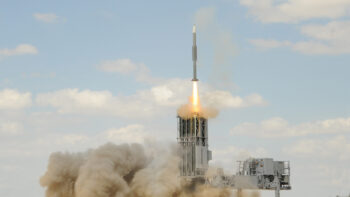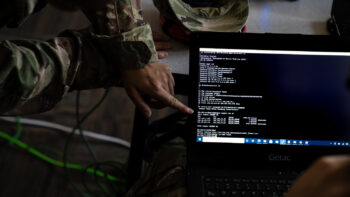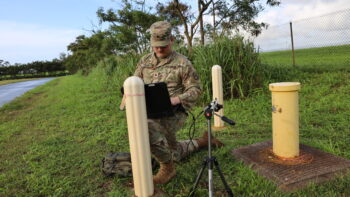NATIONAL PRESS CLUB: Since 9/11, robots have become commonplace tools for the military, police bomb squads, and hazardous materials teams. But as budgets tighten, not even the Pentagon can afford to buy many types of robots, each for a different mission.
So Northrop Grumman’s subsidiary, Remotec, is rolling out a new robot called Titus specifically designed to be smaller, cheaper, and more versatile than the current crop. Its basic configuration weighs about 135 pounds, costs about $125,000, and is “modular” so users can easily snap off and snap on parts to tailor the robot to a particular mission. Users can swap the manipulator arm, the tires and tracks (it has both), and cameras; Titus even has “Picatinny rails” like those on standard-issue U.S. military rifles so users can snap on different accessories.
For example, a SWAT team can snap on a taser to stun a suspect, while a bomb squad can attach a miniature water cannon called a “disruptor” to blast open suspicious packages. Northrop also wants to offer Titus to hazardous materials (HAZMAT) teams, but they’re still working on a pressurization system to prevent stray sparks from the robot’s electric interior from igniting any flammable gasses.
Titus is primarily aimed at law enforcement and other emergency responders, but Northrop aims to apply its technologies and design principles both as upgrades to its current robots and to future robots for the Army that will likely be both larger and more autonomous. (Like most current ground robots, Titus has to be remotely controlled by a human operator; robots that can find their own way around obstacles are a work in progress). Northrop is now in negotiations to sell the first 16 or so Titus robots to undisclosed state, local, and international agencies in the first quarter of 2013.
Israel signs $583 million deal to sell Barak air defense to Slovakia
The agreement marks the latest air defense export by Israel to Europe, despite its ongoing war in Gaza.


























